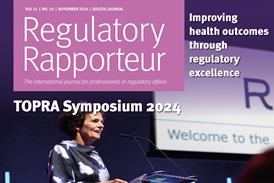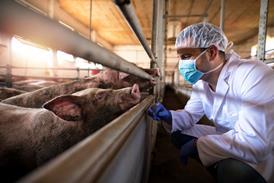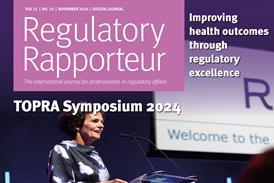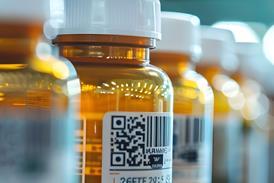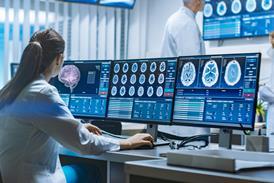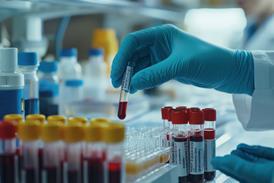All Regulatory Rapporteur articles in CPD Supplements
View all stories from this issue.
-
 Journal
JournalFDA meetings: How to hold a successful meeting across the drug development lifecycle
This continuing professional development supplement discusses the available meeting options for products regulated by CDER and CBER, which should help the reader select the appropriate avenue to receive the Agency’s advice and develop a viable regulatory interactions strategy.
-
 Journal
JournalRegulatory complexities and challenges of biosimilars
This continuing professional development (CPD) supplement focuses on the regulatory complexities and challenges associated with biosimilar products and their development. Although biosimilar products have been registered and approved for use in the EU for more than a decade, there is increasing speculation and excitement on the potential for biosimilars with increasingly complex structures, eg, multi-subunit, extensively post-translationally modified, and lipid-containing products.
-
 CPD Supplement
CPD SupplementThe Olaratumab experience
As highlighted within this CPD article, a conditional marketing authorisation (CMA) can be revoked in Europe. However only one occurrence has occurred since 2006 (in April 2019). Lartruvo (olaratumab), a humanised antibody, was granted a CMA via accelerated assessment on 9 November 2016 for adult patients with a locally advanced, ...
-
 CPD Supplement
CPD SupplementQualification of stride velocity endpoint in Duchenne Muscular Dystrophy
In April 2019, the Committee for Medicinal Products for Human Use (CHMP) issued a qualification opinion on stride velocity as an endpoint in clinical studies of medicines for the treatment of Duchenne Muscular Dystrophy (DMD).[1] Mutations in the dystrophin gene cause this inherited, x-linked disorder which causes progressive muscle weakness ...
-
 CPD Supplement
CPD SupplementDigital health technologies – an overview of EU and US frameworks
Digital health technologies have revolutionised the global healthcare system. This continuing professional development supplement provides an overview of the qualification frameworks for digital health technologies, which are used as drug development tools in the EU and the US.
-
 Journal
JournalFundamentals of regulatory writing: the document development process
Regulatory writers lead the development of high-quality regulatory documents by working in collaboration with colleagues across multiple functions. Document development is a multistep process with the regulatory writer acting as project leader. This article describes each of the stages of the process and suggests best practices for achieving timely project completion and document delivery
-
 CPD Supplement
CPD SupplementCTIS national pilot – Belgium
Although the CTIS is still under development, several EU countries (eg, Belgium, France, Germany, Finland and the UK prior to Brexit) are running national pilots to test the new way of working introduced by the Clinical Trial Regulation 536/2014. Pilot conditions in the various countries are different. The Heads of ...
-
 CPD Supplement
CPD SupplementThe EU Clinical Trial Regulation (EU) No 536/2014-The Clinical Trials Information System
This continuing professional development article addresses changes introduced by Regulation (EU) No 536/2014 (the Clinical Trial Regulation/CTR) and focuses on the revised submission process for clinical trial applications in the EU/EEA via the new EU portal
-
 CPD Supplement
CPD SupplementCase Study- Luxturna
The ATMP Luxturna (voretigene neparvovec) is a GTMP which utilises a recombinant adeno-associated viral vector serotype 2 (rAAV2) capsid as a delivery vehicle for the human retinal pigment epithelium 65 kDa protein (hRPE65) cDNA to the retina. Luxturna is approved for patients with retinal dystrophy associated with biallelic RPE65 mutations ...
-
 CPD Supplement
CPD SupplementUnderstanding the basics of ATMP regulation
Advanced therapy medicinal products (ATMPs) are biological products which comprise a diverse group of medicinal products that are often complex and diverse in nature. As these products are regularly developed for diseases of high unmet need, the requirements for evidence generation to support marketing authorisation often require innovative development plans. Within this continuing professional development supplement we investigate the regulation of ATMPs in the EU and US [see also Regulatory Rapporteur October 2020 and February 2020 for articles by Harriet Edwards on ATMPs].
-
 Journal
JournalGene therapy: regional assessment comparison
Axicabtagene ciloleucel (tradename YESCARTA) is an autologous chimeric antigen receptor T-cell (CAR-T) therapy that targets CD19 and is approved for the treatment of aggressive, relapsed or refractory forms of B-cell non-Hodgkins lymphoma (NHL). The active substance is composed of a patient’s cells that have undergone ex vivo modification, which causes ...
-
 Journal
JournalGlobal regulatory frameworks for the development of gene therapy products
Gene therapies have the potential to revolutionise the global healthcare system. Some of these products may offer curative benefits to patients with devastating conditions. This continuing professional development (CPD) supplement provides an overview of the regulatory framework for the development of gene therapy products in key markets.
-
 CPD Supplement
CPD SupplementExpedited drug development regulatory pathways in the EU and the US
This continuing professional development (CPD) supplement focuses on the regulatory framework available to drug developers for expediting their products’ development and review processes in the EU and US. These mechanisms are relevant for products which address an unmet medical need in the treatment of a serious and/or life-threatening condition.
-
 CPD Supplement
CPD SupplementCreating an integrated summary of immunogenicity report
Introduction The purpose of this case study is to illustrate the creation of an integrated summary of immunogenicity report (ISI) that fulfils the recommendations described in current regulatory guidance for the scope of information needed to facilitate assessment of immunogenicity-related risks to support marketing authorisation of novel and biosimilar versions ...
-
 CPD Supplement
CPD SupplementPresentation of immunogenicity-related information in regulatory dossiers
The purpose of this continuing professional development supplement is to explain how an integrated summary report can be created to consolidate the information required for assessment of immunogenicity-related risks of different types of biopharmaceuticals.
-
 CPD Supplement
CPD SupplementThe psychological contract and the hierarchy of criteria
The following exercise will give some insights into people’s immediate reactions to change. This could apply to you or your teams’ reactions: 1. Start by writing a list of at least ten things that are important to you about your job and what you enjoy about it This will ...
-
 CPD Supplement
CPD SupplementHow to manage teams through change
Within this continuing professional development (CPD) article we introduce some practical models and tools that can be actively utilised to the benefit of any manager who is responsible for implementing change.
-
 Journal
JournalEU PIP breast implant withdrawal
The Poly Implant Prothèse (PIP) silicone breast implant failures had a socioeconomic impact at an international level, affecting nearly 400,000 patients in 55 different countries,[1] and resulted in major EU regulatory updates. PIP was a French company founded in 1991 and it produced approximately two million sets of silicone breast ...
-
 Journal
JournalFundamentals of the European devices regulatory framework
In the EU, the development of medical devices is supported by the European Commission Directive (93/42/EEC Medical Devices Directive). To this, the EU has a unique system in dealing with medical devices, iconised as the CE Marking, which provides the right for the products to be commercialised in the EU. This continuing professional development supplement presents the unique system of medical devices that is currently applied in the EU. Additionally, the new regulation of medical devices (EU 2017/745 Medical Device Regulation) is also covered.
-
 Journal
JournalKey steps and considerations of the EU centralised procedure
This continuing professional development article aims to provide some of the background and key steps and considerations when using and navigating the EU centralised procedure for a new marketing authorisation application (MAA).




